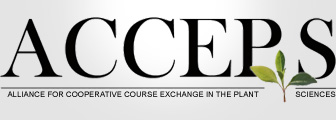Sustainable Agroecology Course Information Sheet
Course Overview
This course is taught in Spring semesters by MSU. Crop Ecology involves the study of interactions between crops and abiotic and biotic environments. Emphasis will be placed on quantitatively examining theory and principles for production, stability, and sustainability of agricultural ecosystems. Course content is intended to encourage student advancement in literacy, numeracy, written and oral communication, and independence of thought.
Expected Learning Outcomes:
Upon completion of this course, students should be able to:
1) Describe how plant adaptations to environment affect crop selection, growth, and yield.
2) Describe crop responses to radiation quality, quantity, and photoperiod.
3) Describe plant adaptation and acclimation to temperature.
4) outline crop interactions with pests.
5) Quantify services provided by agroecosystems including food, fiber, and fuel production, water quantity and quality, nutrient cycling, climate regulation and biodiversity.
6) To use the tools of crop ecology to develop new ways to address the ever-changing challenges of agricultural production.
The campus coordinator for Mississippi State University is Dr. Richard Harkess (richard.harkess@msstate.edu) and the course management system is Canvas.
Instructor
Dr. Brian Baldwin
Professor
Plant and Soil Sciences
bsb2@msstate.edu
(662)324-737
Required Text(s)
Agroecology: The Ecology of Sustainable Food Systems. Stephen R. Gliessman, 3rd ed. CRC Press, 2015
Course at Enrolling Institution:
Please see your institution’s spring catalog to locate the course number for Sustainable Agroecology.
